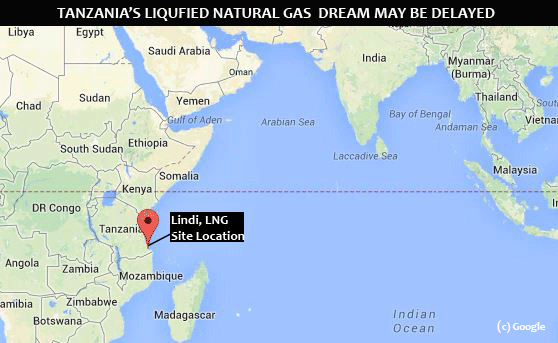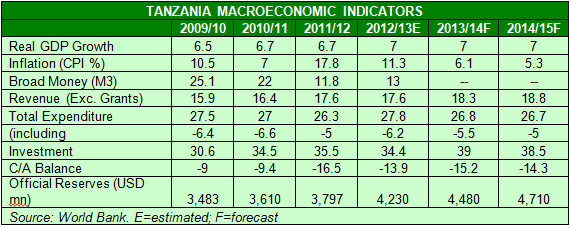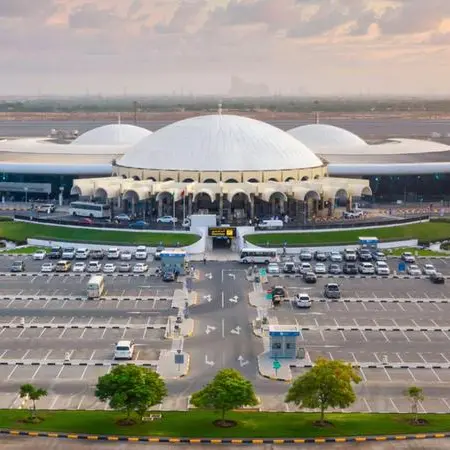Tanzania's push to accelerate its natural gas development has hit a speed bump as the process gets mired in legislative processes.
"Legislation outlining key information including domestic usage requirements and local content rules is still in the drafting phase within the Energy Ministry and is unlikely to be passed in Parliament this year," said Clare Allenson, Africa analyst at the Eurasia Group.
"The Natural Gas Policy (a precursor to the legislation), approved by the cabinet ahead of the launch of the on-going bid round has provided a rough outline of the government's vision for the sector, but does not include any specifics on regulatory terms," Allenson noted.
But proceedings in parliament will have to wait as the government pushes through a draft constitution before a referendum president Jakaya Kikwete expects to hold this year.
As a result, parliamentary business will likely be on hold until at least the May session, which is traditionally dedicated to the budget. The budget debate is likely to be drawn out as occurred last year when MPs fought the government on unpopular tax measures, said Allenson
"The debate will also be hotly contested as MPs seek to secure increased finances for local projects ahead of general elections next year, which will be difficult in the midst of under-performing government tax collections and other state revenue generation. The natural gas bill and other key issues are thus unlikely to be addressed until the final session late in the year, at the earliest."
In addition, international producers such as Statoil ASA also now face much larger government cut and higher royalties in a new Model Production Sharing Agreement.
IMPRESSIVE RESERVES
The country reportedly has 43 trillion cubic feet of recoverable natural gas reserves, and companies ranging from BG Group, Ophir Energy to ExxonMobil Corp. has swooped in to pick up assets. International natural gas producers are attracted to Tanzania given its proximity to Asian markets.
The delays could be troublesome as the authorities have already embarked on a strong investment plan to develop the infrastructure in anticipation of a natural gas windfall. The country raised USD 600 million in a private placement last year and plans to raise a Eurobond as well.
Preserving macro-economic stability is necessary for rapid growth to continue in the medium term, warned the International Monetary Fund in a comment on the country on February 25.
"The key challenge is to preserve fiscal space for infrastructure investment and priority social spending while gradually reducing the fiscal deficit to maintain debt sustainability," the IMF said.
STEPPING ON THE GAS
Tanzania's economy is expected to grow 7% this year, but future growth depends on Tanzania's ability to monetize its offshore natural gas reserves and the development of an export infrastructure that can push Tanzanian and East African goods to Asia.
China has backed a new port at Bagamoyo for an investment of USD 10 billion to handle 20 million cargo containers. Construction on the project began in January.
Tanzania signed a framework agreement with China Merchants Holding International Co. Ltd. to carry out the construction of the port as well as the railway network and the special economic zone.
"An agreement for the development of the Bagamoyo Port Project was signed in March 2013 as part of the 1.28 trillion shilling infrastructure package deals, but this does not cover the full costs of the port project," according to Aiddata, an international database company.
"The agreement specified that USD 500 million would be designated for port financing for the year 2013 to allow the project to start. Reports indicate that the financing will come through interest-free or low interest loans."
Norway's Statoil and UK's BG Group are reportedly building a liquefied natural gas project in Linin and are expected to announce schedule and dates in April, according to Tanzania's energy minister.
Statoil, which has discovered nearly 20 trillion cubic feet and has partnered with ExxonMobil Corp. and Ophir Energy Plc. could spend as much as USD 30 billion on the project, with a start date of 2022.
The ministry is also planning a second round of licensing on May 15 and hopes to raise Tanzania's reserves to 100 trillion cubic feet.
FDI TRANSFORMING THE ECONOMY
The magnitude and timing of anticipated FDI inflows resulting from the development and exploitation of natural gas resources will also impact the local economy, especially in geographical areas where related activities will take place.
The value of new investments related to these resources is expected to be in the region of USD 4-5 billion per year, said the World Bank.
Indeed, natural gas revenues could be transformative for Tanzania and help alleviate poverty.
"In seven to 10 years, one potential source of financing for cash transfers could be the fiscal revenues that will eventually be derived from natural gas. These revenues are expected to be significant, at approximately USD 2 billion per year.
If Tanzania were able to redistribute 10% of the revenues derived from natural gas to the poorest, this would amount to USD 15 per household per year, or 26% of the average poverty gap.
But realizing the dreams of hydrocarbon revenues will not be easy, as political hurdles come in the way.
The feature was produced by alifarabia.com exclusively for zawya.com.
© Zawya 2014




















